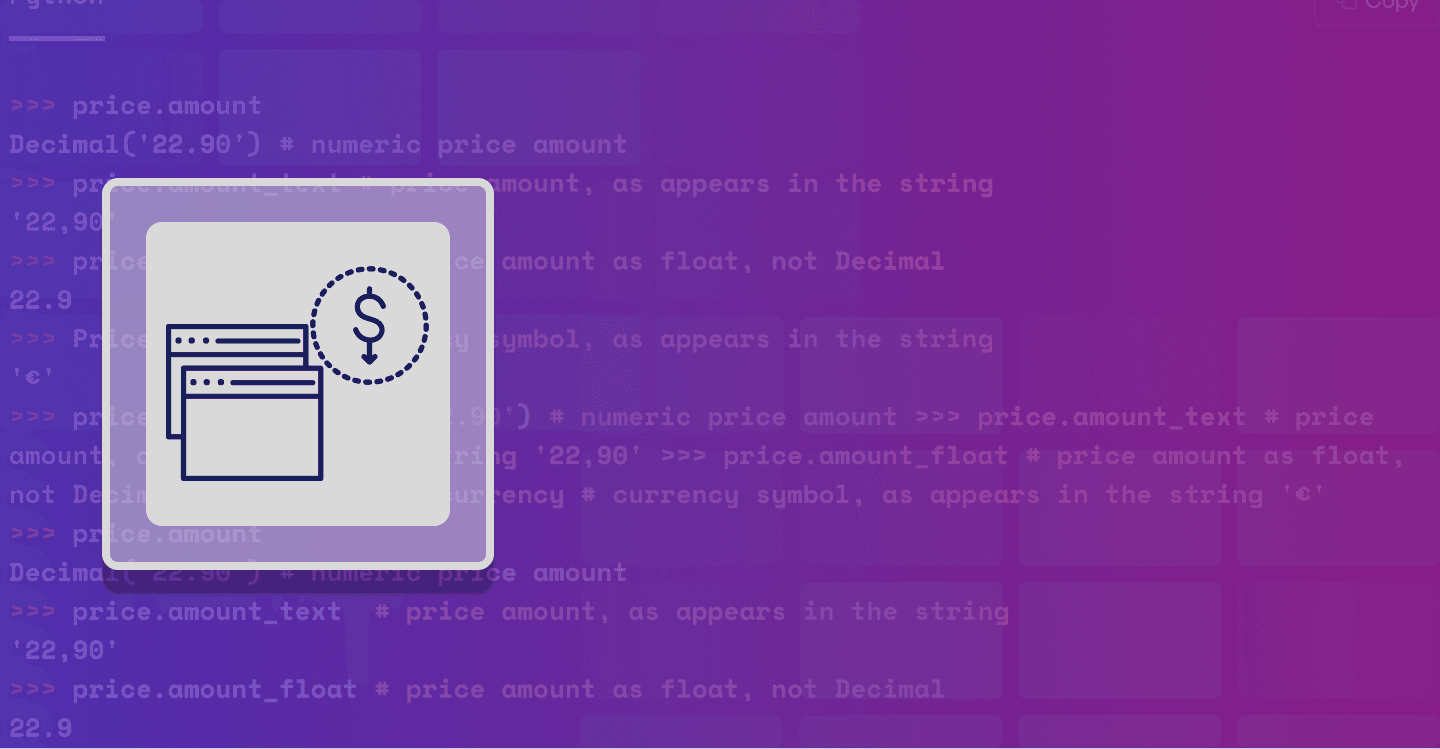As LLMs ramp up scraping efficiency and proprietary AI slash processing costs, the economics of buying web data will change rapidly in 2025.
Suppose you’re leading a business that sources from internal scraping teams or buys web data from external vendors. In that case, this is the moment to rethink how you experiment, validate new ideas, and unlock value from the web at scale.
It’s no longer about whether you can explore new data use cases. The real question is: how fast can you move now that the barriers are falling?
Web data sourcing just got cheaper
In 2025, one major shift stands out: buying data is getting cheaper and easier.
Three key developments are driving that change:
First, data marketplaces have matured. Platforms like AWS Data Exchange and Databoutique now let you access curated, ready-to-use datasets with minimal setup. There are no pipelines or infrastructure—just plug and play.
Second, vendors are faster and leaner thanks to AI. Technologies like Zyte’s AI-powered scraping systems now deliver structured data three times faster than previous methods while automatically adapting to site changes. That means fewer setup fees and faster ROI for data buyers.
Third, economies of scale are kicking in. Large vendors are handling massive volumes of web data across clients. As a result, unit costs are down, and vendors can pass those savings on to businesses experimenting with new data ideas.
You now have access to affordable, low-friction data acquisition—even for projects that used to be too niche or high-risk to justify.
Take advantage of the exploring and discovering phases
According to The 2025 Zyte Web Scraping Industry Report, most companies go through three stages of the data buying journey: exploring, discovering, and defined.
If you’re in the early stages—running proof-of-concept projects, testing new markets, or validating use cases—the economics are now on your side. You can try more ideas with less investment and lower setup costs, automated extraction, and bundled scraping APIs. And that agility is a competitive edge.
Even in the discovery phase, where needs are more specific but still evolving, AI-powered vendors make it easier to iterate and adapt your datasets as you scale up rapidly.
These use cases are leading the way
Based on Zyte’s own analysis of its customer demand, several use cases are already capitalizing on the reduced cost of web data—and will be growing rapidly in 2025:
Demand for lead generation has nearly doubled compared to last year. Businesses use merchant, store, and company data to drive hyper-targeted marketing and expansion strategies.
Job listings are up by 50%, driven by companies tracking hiring trends, salary benchmarks, and market sentiment for competitive intelligence.
Product and pricing intelligence remains dominant, making up 59% of data deals at Zyte. This data pays for itself quickly in a dynamic pricing and e-commerce competition-driven world.
While still a smaller portion of the volume, AI-related data projects now have deal values three times higher than the average. The total value of these projects has surged 400% year over year.
These trends show a clear pattern: companies are using more affordable web data to de-risk innovation and build new revenue streams. The tools are now in place to help you follow the same logic.
What this means for you in 2025
Falling costs and smarter scraping tools mean one thing: you now have more leverage to experiment, validate, and move fast on web data opportunities.
Don’t wait for the perfect use case. Dust off those shelved ideas from last year—the ones that didn’t make the budget—and test them again. The economics have changed.
Inside the full 2025 Web Scraping Industry Report, you’ll find a breakdown of when to buy vs. build, how to mix open-source and proprietary tools, and how to assess the total cost of ownership for any data initiative.
If you’re ready to lead with data, this is your window.
